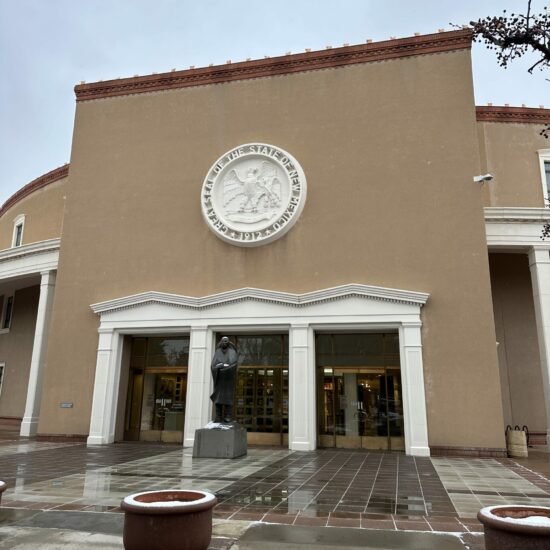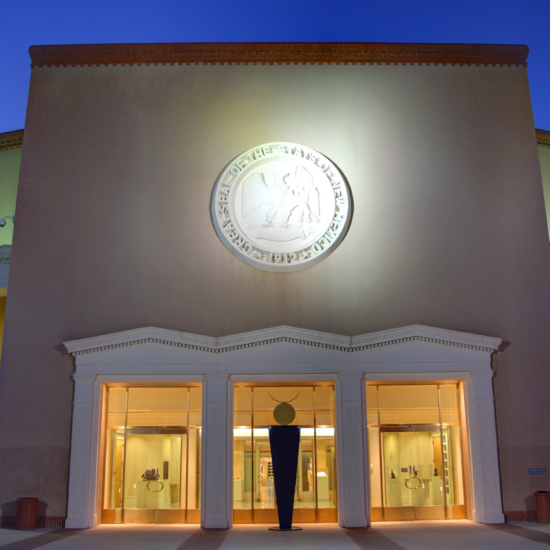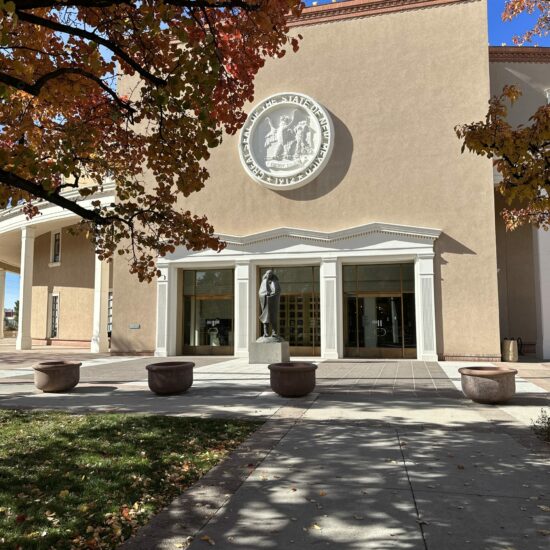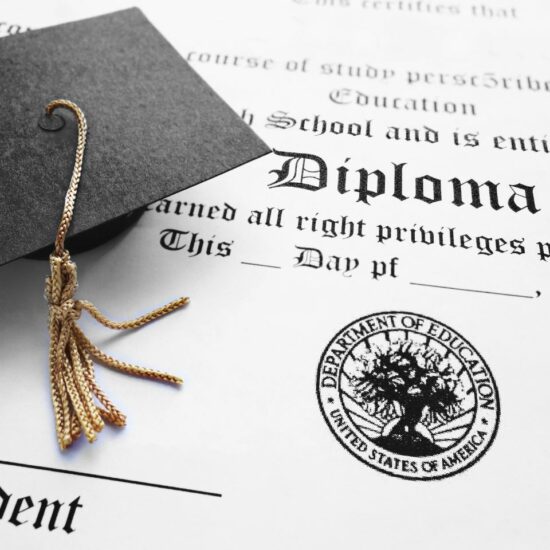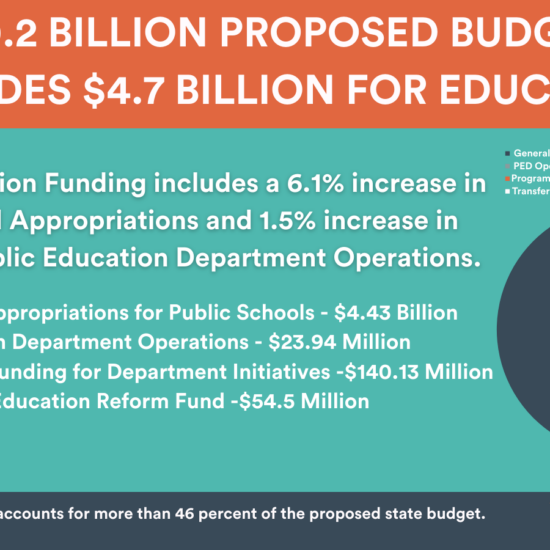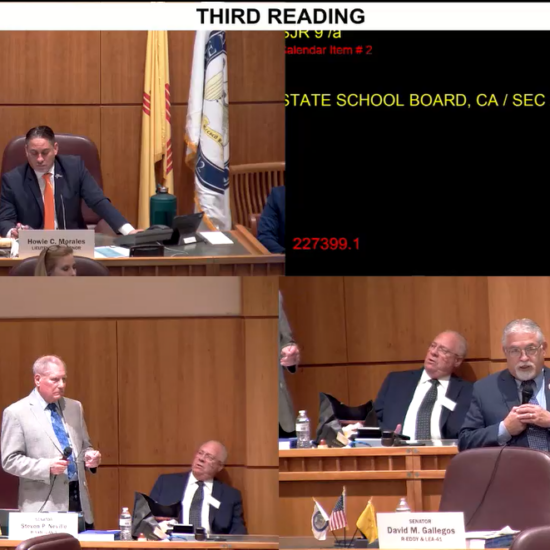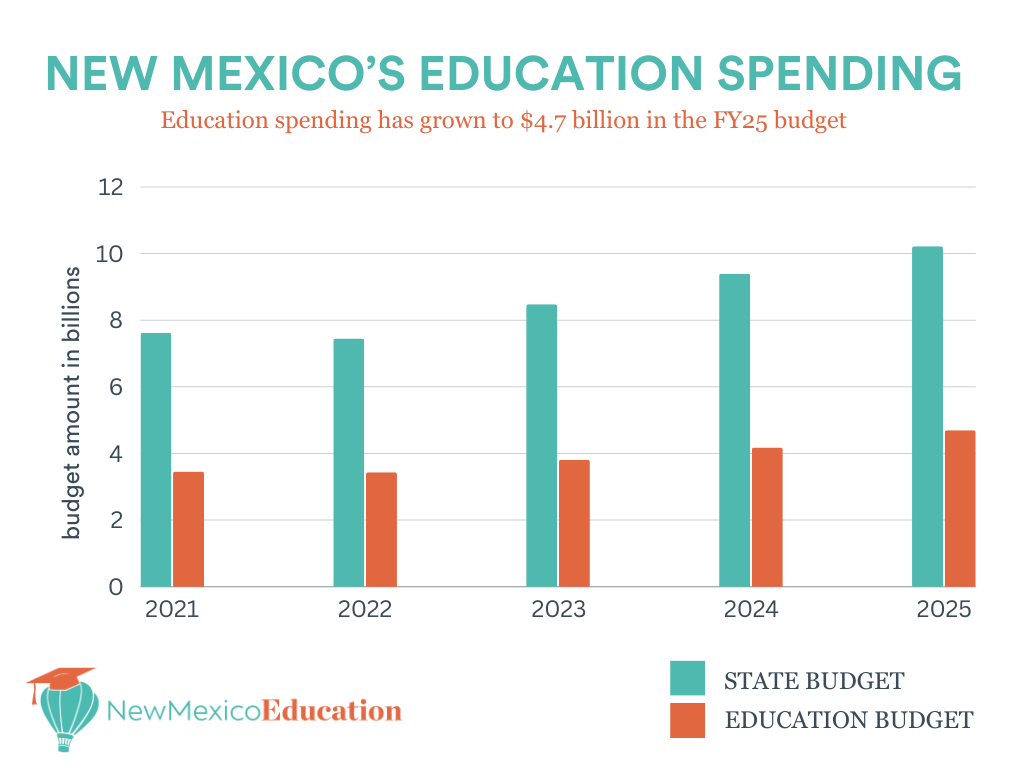
The 30-day 2024 legislative session has come to an end, with legislators approving a $10.2 billion state budget for fiscal year 2025 that is now awaiting approval from Governor Michelle Lujan Grisham.
The final version of the budget totals $10.22 billion, marking a 6.8 percent increase from the previous year, while maintaining a 31 percent reserve. The passage of the budget was preceded by extensive deliberations in both the House and Senate, with lawmakers from across the political spectrum voicing their perspectives and concerns. The General Appropriations Act, known as House Bill 2, received concurrence from the House of Representatives on Feb. 13, following amendments made by the Senate.
Funding Education
The FY25 budget allocates $4.76 billion to education, about 47 percent of the total budget, an increase of $580 million from FY24.
Making up the total amount is $4.2 billion in State Equalization Guarantee Funds (SEG), which are distributed to school districts via the funding formula and are used at the discretion of the district. The SEG includes $94 million in funding for a three percent raise for all school staff, $60 million to support schools with extended calendars, and $30 million in flexible funding to support CTE, literacy and community schools.
In middle of the line funding, the budget allocates $299 million. Middle of the line funding is distributed to school districts but must be used for specific purposes. The appropriation includes $133 million for transportation expenses, and $10 million for state assessments.
Below the line funding, which is distributed at the discretion of the Public Education Department, totals $320 million. These distributions include $30 million for summer reading interventions, $40 million for CTE, $20 million for educator fellows, and $5 million for attendance success initiatives.
The budget sets aside $41 million in recurring funding for the Public Education Department to fully fund universal school meals.
School district salary increases are also addressed in the budget, with a three percent raise earmarked for public and higher education employees to aid in educator recruitment and retention.
This budget was the outcome of bipartisan efforts to address the needs of New Mexicans across various sectors, including education, workforce development, public safety, infrastructure, and environmental conservation.
How Does this Budget Stack Up?
With a large $10.22 billion budget, and a historic $4.7 billion allocated to education – approximately 47 percent of expenditures, how does this budget stack up with previous budgets?
In Fiscal Year 2024, the state budget was $9.4 billion, with $4.17 billion going to education. That is approximately 44.3 percent of the budget.
FY 2023 was similar, with a state budget of $8.48 Billion and $3.8 billion going to education. Spending for education made up 44.8 percent of the budget.
FY 2022 was a much smaller state budget, at $7.45 billion. Here, $3.44 billion was allocated to education, making up approximately 46 percent of the budget.
FY 2021 the state budget was $7.62 billion, and education spending was $3.46 billion. Approximately 45 percent of the budget was allocated for education.
Over the past five years, New Mexico has increased education spending by $1.24 billion dollars, which is approximately $4,100 more per public school student.
How did we get to $4.7 billion for education?
At the beginning of session, both the governor’s office and the Legislative Finance Committee released their proposed budgets for FY 2025.
Lujan Grisham revealed a large $10.5 billion spending plan, representing a 9.9 percent increase from the previous fiscal year, emphasizing a wide array of educational initiatives. The governor wanted $33 million to expand early pre-kindergarten slots, a $101.2 million increase to assist school districts in adjusting to new 180-day school calendars, and $58.1 million for structured literacy programs, with $30 million in capital outlay funds designated for a new Literacy Institute. Moreover, the proposal included $43.5 million for universal school meals and a three percent pay raise for educators, totaling $96 million.
On the other hand, the Legislative Finance Committee’s recommended $10.1 billion spending plan closely mirrors the governor’s proposal, with a focus on enhancing general fund appropriations for public education to $4.42 billion. This recommendation represented a $243 million or 5.8 percent increase from the previous fiscal year. Notably, the committee’s recommendation also earmarked $243 million in nonrecurring, education-related appropriations to address issues highlighted in the Yazzie-Martinez education sufficiency lawsuit. While the executive recommendation included a three percent raise for educators, the LFC proposal included an average four percent race for educators.
Other Education Spending
The budget appropriates $959 million for the Higher Education Trust to ensure long-term funding for the Lottery and Opportunity Scholarships.
Addressing early childhood education and care, the budget increases funding for the Early Childhood Education & Care Department by six percent, including significant investments in pre-kindergarten and childcare quality supports. Funding from the Early Childhood Trust Fund includes $75 million for childcare assistance and $12.3 million for various services aimed at supporting infants and families.
Working in bipartisan fashion, the legislature was able to find a medium that both political parties could agree on and approved the total $10.22 billion budget with recommendations from both the governor’s office and the legislative finance committee.


